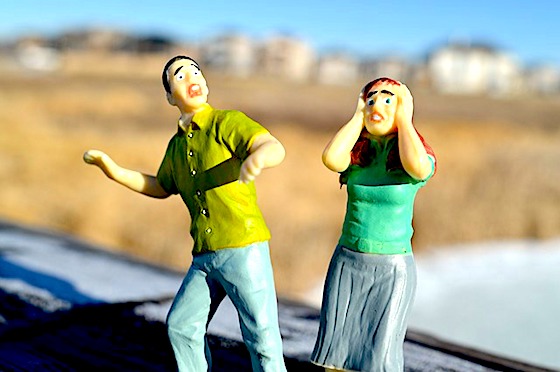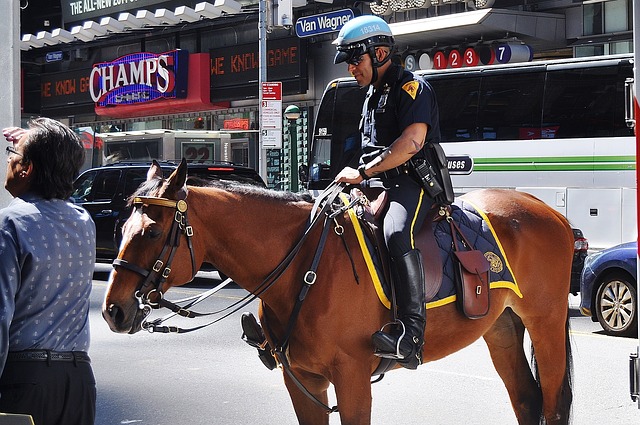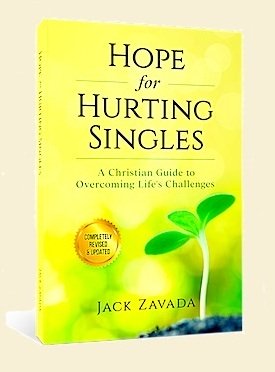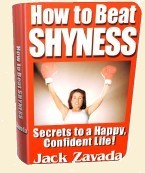
Uncertainty: How to cope
Uncertainty can take a toll on you.
You want security. You want things to run on an even keel without stressful disruptions. You want to know exactly what's going to happen and when, so you can prepare for it.
Unfortunately, that's not how the world works. Isn't there some crisis every day you need to respond to? Just as you're happily working through your plan, the unexpected occurs, knocking your little security train off the rails. Writer Warren Wiersbe says this:
Real contentment must come from within. You and I cannot change or control the world around us, but we can change and control the world within us.
Since you can't control this turmoil, is there any way you can respond to it better? And, even more importantly, is there a way you can navigate these choppy waters with a sense of inner peace?
Accept uncertainty as inevitable
One of the marks of maturity is recognizing that the world is the way it is, not the way you want it to be. That's called facing reality, and it has nothing to do with reality TV shows. Actually, reality TV is usually scripted and far, far from the real world.
No, things go wrong, and they go wrong often. Small children would like to live in a fairy tale land where everything is sweet and rosy all the time. Sadly, many adults think that's how life should be too and become very upset when it isn't.
Few of us enjoy chaos, but we can't simply wish it away. The sooner we learn to respond calmly to it, the happier we'll be. Have you noticed that two professions who have to deal with disorder constantly do it calmly and methodically? I'm talking about nurses and police officers.

Patients who are dealing with the unknown think every surprise is
life-threatening. Nurses, who have seen almost everything, handle the
event in stride, acting confidently to reassure the patient everything
is all right. Cops routinely deal with people who are angry or afraid.
Again, their steady demeanor soothes the person so some sense can be
made of the situation.
In most cases, confident behavior is not natural. It comes from training and experience. For you and me, it means understanding that uncertainty is inevitable. When (not if) it comes, we won't be taken off guard. Our confidence comes from remembering we have dealt successfully with crises in the past. We've gotten through everything life has thrown at us so far; we'll get through this current episode too.
Cut that crisis down to size
The first step in dealing with uncertainty is recognizing that much of what we see and hear is hype. It's deliberately exaggerated to provoke an emotional response from us. News broadcasts are much more sensational today than they were years ago. Internet news is overplayed. Why? To get our attention. Attention means ratings and page views. That means more money from advertisers.
We're being manipulated for money. How shocking!
Remember too that competition for our attention has never been greater. That's why everything focuses on our emotions, the most vulnerable chink in our armor. Imagine how many stories you'd read if they played to your reasoning.
In this constant state of tension, we transfer the same emotions to our own personal problems. On a bad day, the tiniest obstacle seems like the end of the world. And let's admit it, most of us have what we consider bad days.

Our bad days are relative, though. Compared to some people's problems, ours may be microscopic, but they're, well, ours.
That inflates their importance. This tendency to catastrophize the
mundane has become more common in all of us. Speaking bluntly, we've all
become so spoiled that the latest inconvenience seems like a personal
insult.
Theologian John Calvin recognized the danger of this mindset in the 1500s:
Those who are extremely anxious wear themselves out and become in a sense their own executioners.
While we all have serious problems from time to time, let's not turn our minor everyday upsets into life-or-death calamities. Dial it down a notch. Several notches, in fact.
We're treating only the symptoms
We each have our own way to relax. Some are harmless, some are not. What's telling is that the United States has an epidemic of substance abuse. Nobody knows how many people are turning to drugs or alcohol to relieve symptoms of uncertainty, but it may be in the millions.
Recreational drugs like marijuana are dangerous. If the government of your state tells you they're safe, remember that it has legalized them recently only so it can reap the tax revenues. Does that sound like they have your best interests at heart? The same folks who used to conduct police raids on gambling and marijuana now say they're harmless. When they weren't taxing them, they weren't so harmless. Any hypocrisy there?
Every alcoholic will tell you they started drinking just to "take the edge off." It may seem like an effective way to deal with uncertainty, but getting wasted as a way of stress control is destructive therapy. The problem with alcohol is that it's legal and too easy. Before you know it, you're dependent.
Millions of people have discovered ways to relieve stress that do not cause injury. A hobby is the most popular and probably the most effective. Then there are things like sports, meditation, reading, cooking, music, movies, and art. The more actively your mind is involved in the pursuit, the better.
Be warned, though, that any pastime brings only temporary relief. That's because it only treats the symptoms. As I've said many times on this site, the difference between fun and happiness is that fun is temporary. It has to be repeated. Its effect lasts only a short while. Sure, we can enjoy the memory, but eventually anxiety builds up and we need to relieve it again.
Are single people unique?

Single people, whom this web site addresses, don't always have someone to talk things over with. We come home at night, full of fear and don't know what to do. Instead of getting involved in an activity to take our thoughts off it, we tend to stew about it, building up the anxiety like a snowball rolling downhill.
Talking with a friend or relative is worthwhile, but often we singles don't want to burden them with our trouble or make a pest of ourselves. And sometimes, if we choose the wrong person to commiserate with, we end up feeling even worse.
Sadly, many married people don't confide in their spouse. They keep their worries bottled up too. I imagine lots of arguments are not about the disputed topic at all, but from unexpressed feelings over something else.
So we have millions of people pouring out their hearts to therapists. A trained counselor can do much good. They can help a person put things into perspective again. They're objective enough to recognize self-destructive thoughts and behavior.
If you feel a therapist would help you, by all means, go. These are unsettling times. When you have a serious problem, it makes sense to talk to a professional about it. If you can't afford a counselor, county mental health services can connect you with a social worker or psychologist.
Ways to reduce uncertainty
Living happily in such an uncertain world seems almost impossible. The threats are too great. They're too constant. You feel weak, alone, and helpless.
However, you can reduce your risk with a few practical, common sense actions:
- Address debt. Debt and money worries may top your list. They probably cause more sleepless nights than anything else. A reputable debt relief service can put you on the road to solvency. The hardest thing is to take that first step of reaching out for help. It will be a long process, but the results will be more peace of mind. That's what you're after.
- Start an emergency fund. In today's changing conditions, an emergency fund is not a luxury but a necessity. Surveys show many people do not have $500 to their name. Do you? Do you live paycheck to paycheck, without any savings? An emergency fund will bail you out if you have car trouble or other unexpected bills. It's one of the smartest things you'll ever do. Here's how to go about it.
- Protect your health. Earlier I talked about avoiding drugs and alcohol. Taking care of your health is a wise way to guard against illness. While there are no guarantees, eating healthy foods and avoiding risky behavior go a long way toward keeping you out of the hospital. If this sounds dull or restricting to you, compare it to being in a hospital bed. Precautions taken now can prevent disaster later.
Those are steps to protect your financial and physical life. But what about the root cause of uncertainty? What one thing can you do to safeguard your future?
The only sure thing in life
Maybe you've heard it said, "There's no sure thing."
I'm here to tell you there is a sure thing, but only one sure thing in life. It's God.
If you had a choice, what would you pick: continued anxiety like you have now, or certainty and peace of mind? British politician Henry Drummond made it clear:
Christ never failed to distinguish between doubt and unbelief. Doubt is can't believe. Unbelief is won't believe. Doubt is honesty. Unbelief is obstinacy. Doubt is looking for light. Unbelief is content with darkness.
I'm not going to try to convince you God exists. Assume, for the sake of argument, that he does. Here's how God ends uncertainty:
God, by definition, never changes. He knows the past, present, and future so he never needs to learn. He's perfect so he never needs to improve.
He cannot die. He lives forever; he will always be there.
He is the most intelligent being in the universe because, well, he's God. And he always tells the truth. It is impossible for him to lie.
Here's the best part: God loves you. Why? He just does. That's his nature. It's not based on your looks, your success, your possessions, your coolness, or anything you do. He loves you exactly as you are, with all your faults and shortcomings.
God, who loves you and will never die, will never walk away from you, no matter what. When you give your life to God, you have guaranteed love for all eternity. You will have it now, and you'll have it after you die. In fact, Jesus Christ, God's son, made it possible for you to live forever, with God in heaven.
No matter how much things change in the world and in your life, God is the only certainty. God is the only thing you can count on, in every single situation.
Putting your faith in God is the only way to deal effectively with uncertainty. As a believer, I know that no matter what happens, God will never desert me. Even if I die, I am safe in his grip and he will bring me to heaven, to himself. If you don't believe in God, you can't say that. You can't be certain of anything, can you?

Here's the bottom line truth: God has not gotten me out of all the jams in my life.
You may find it surprising that I say that, but I can tell you that he has been with me through
them all. I can't really explain to you why he hasn't rescued me every
time I asked. Maybe he wanted me to learn something. Maybe he wanted to
mature me.
The important thing is that I made it through, and I believe I did that because of his help and encouragement.
If you want peace of mind, now is the time to start. If you don't believe in God at all, and if you are finally ready for certainty in your life, then start here...
Books and articles of interest to singles
Making good time on the wrong road?

Handling the ups and downs of life
A secret of life? Find something to look forward to
What's the definition of success?













